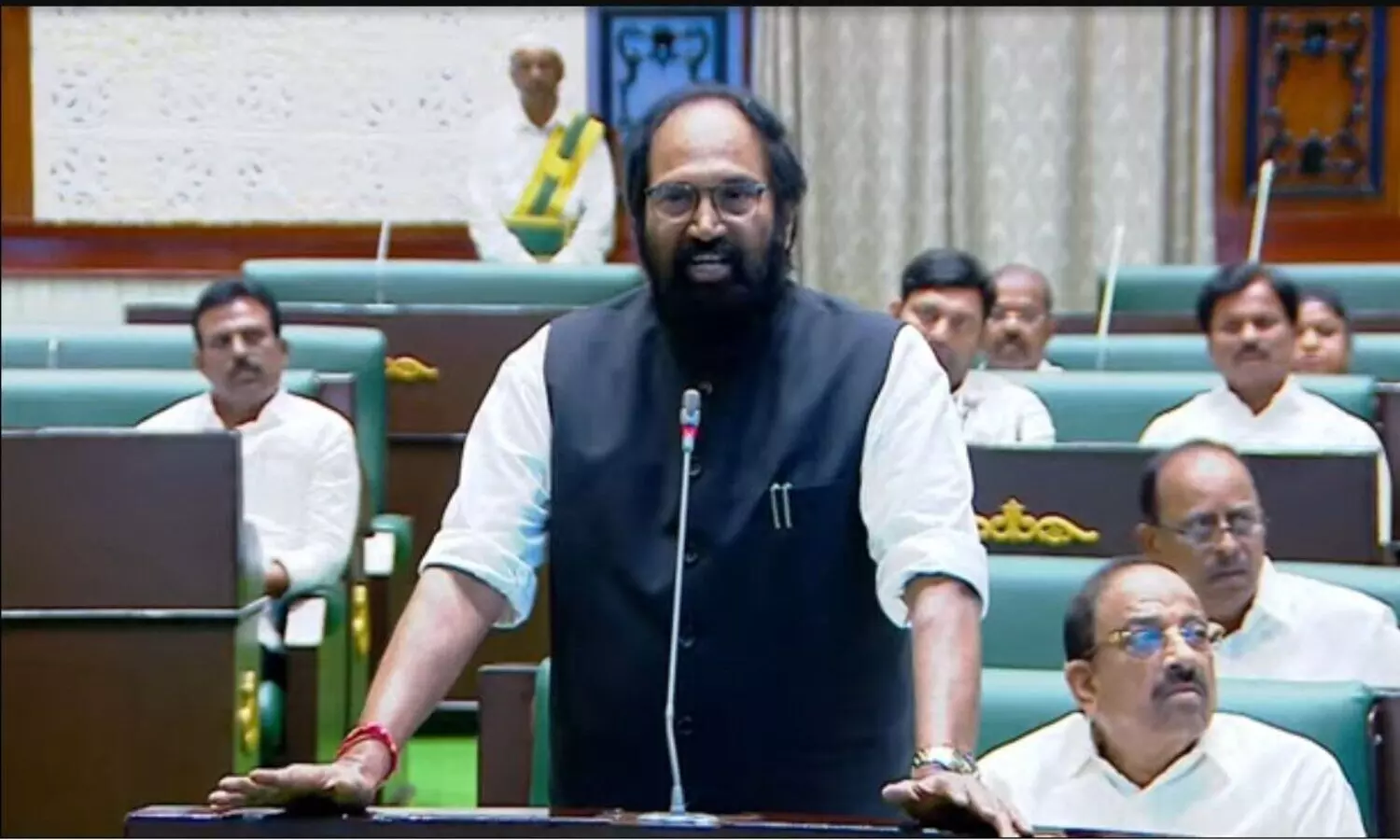Telangana Assembly passes resolution setting conditions to handover projects to KRMB
The Telangana State Legislative Assembly on Monday passed a unanimous resolution stating that it would not hand over control of its projects to the KRMB unless the board agrees to the conditions laid out by the state government.

HYDERABAD: The Telangana State Legislative Assembly on Monday passed a unanimous resolution stating that it would not hand over control of its projects to the Krishna River Management Board (KRMB) unless the board agrees to the conditions laid out by the state government.
Moving the resolution in the House, Irrigation Minister Capt N Uttam Kumar Reddy explained that the Krishna River was the lifeline of the regions of southern Telangana both for Irrigation and drinking water purposes. After the formation of Andhra Pradesh through the Bachawath Tribunal Award, 811 TMC of water was allocated to Andhra Pradesh. Successive Governments have created substantial Irrigation potential through the construction of Major projects. After the formation of the new state of Telangana, sufficient attention was not given to the requirements of the Krishna Basin, and the then government agreed to the grossly unfair ratio of water sharing between the two states, which is 299 TMC to Telangana and 512 TMC to Andhra Pradesh, he said.
Also Read: Uttam slams BRS for spreading misinformation on projects being handed over to KRMB
"Through the AP Reorganization Act 2014, the KRMB was created to regulate the water sharing between the two states. The then government also proposed to hand over the common projects, i.e. Srisailam Dam and Nagarjunasagar Dam, to the control of KRMB, which is detrimental to the interests of Telangana. The KRMB jurisdiction to that effect has also been notified by the Government of India, which was not objected to by the previous government," Uttam Kumar Reddy said in the resolution.
The Irrigation Minister pointed out that on the night of November 29, 2023, the Government of AP, by sending armed police, forcibly took over the control of the right side of Nagarjunasagar Dam, which was till then under the control of Telangana. The Central Government intervened and sent CRPF to remove the AP Police.
Also Read: Telangana Govt urges Centre to rectify discrepancies in KRMB meeting minutes
The resolution specified certain conditions that must be fulfilled before Telangana would hand over control of the common projects to KRMB. These included using catchment areas, drought-prone areas, basin populations, and cultivable areas as the basis for water sharing between AP and Telangana. In-basin needs should be met first, according to the KWDT-I (Krishna Water Disputes Tribunal) Award. The MDDL (Minimum Draw Down Level) of Srisailam would be +830 ft as per the KWDT-I Award, as this was sanctioned as a hydro-electric project by the Planning Commission in 1962 for supplying water to Nagarjunasagar project. Outside basin diversions from the Srisailam reservoir would be limited to specific amounts, such as 15 TMC for Chennai water supply and 19 TMC for SRBC (Srisailam Right Bank Canal), approved by CWC (Central Water Commission). The use towards drinking water would be reckoned as 20% of drawal towards consumptive use as stipulated by KWDT-I. States would be permitted to carry over water to the next year as per KWDT-I and would not be accounted as used in the next year's account. Lastly, unauthorized construction of projects/expansions/new components diverting Krishna water outside the basin would not be permitted strictly unless approved by CWC/MoWR (Ministry of Water Resources).
The House also resolved to request the Government of India to withdraw the CRPF (Central Reserve Police Force) and hand over the control of the project to the Telangana Government.
The Irrigation Minister gave a PowerPoint presentation explaining the resolution's aims and objectives wherein he accused the previous BRS regime of surrendering Telangana's interest by agreeing to 512 TMCs for Andhra Pradesh and 299 TMCs for Telangana. He asserted that the previous BRS regime took the decision to give away the control of projects. He also gave a detailed chronology of meetings and events and their implications to substantiate his allegation.
After over four hours of debate, the House unanimously passed the resolution.



